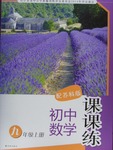题目内容
B.Educated
C.Being educated
D.Educating

 课课练江苏系列答案
课课练江苏系列答案 名牌中学课时作业系列答案
名牌中学课时作业系列答案 明天教育课时特训系列答案
明天教育课时特训系列答案 浙江新课程三维目标测评课时特训系列答案
浙江新课程三维目标测评课时特训系列答案| Ten Chinese PhD students are demanding that Beijing Normal University Professor Yu Dan be away from her television show on CCTV10. They argue that her on-air explanations of Confucius’s Analects (孔子《论语》) are “incorrect and misleading”. Yu is known for explaining Confucius’s Analects to a TV audience. But some complain that her explanations are unfaithful to Chinese tradition. But Yu doesn’t seem to worry too much about her critics, saying, “It’s a matter of personal choice. Some like KFC, while others like McDonalds.” |
| STEALING some online gamer’s password might seem less harmful than credit card theft. It does keep the victim from wearing himself out all night playing. But it is not all that nice, says 19-year-old Zhang Qiwen, in Shanghai. Last August, Zhang accidentally downloaded a Trojan while playing Warcraft. The Trojan is a type of virus used by hackers to steal people’s passwords. Overnight the Trojan transferred all the “gold” (game credits) from Zhang’s private account to an unknown account. Zhang hopes the police will find and punish the thief, who can also pocket some cash since the stolen “gold” can go on sale online. |
| New England’s largest indoor public garden has opened here in a historic park, and officials expect it to become a center for learning about plants as well as a top attraction for visitors. The glass-walled Roger Williams Park Botanical Center, which opened on March 2, offers a tropical garden, an orchid garden, and a Mediterranean room with a collection of citrus trees. The center also has two classrooms and will offer gardening classes provided by the University of Rhode Island. Roger Williams Park, named for the city’s 17th-century founder, also has a zoo. The park already attracts more than 2 million visitors a year, and Providence Mayor David Cicilline said that he expects the new center will attract more and more visitors to Providence. |
Which of the following statements is true?
A. Confucius’s Analects is like KFC or McDonalds in China now.
B. 19-year-old Zhang was angry because a hacker stole his “gold”.
C. The Trojan is a new online game.
D. The garden is run by a university.
We can learn from the passage that ______.
A. there are four gardens in Roger Williams Park Botanical Center.
B. No one likes Yu Dan’s explanation of Confucius’s Analects.
C. Yu Dan won’t show up on CCTV any more for explanations of Confucius’s Analects.
D. Some people make money by stealing online gamers’ game credits and selling them.
Where is Roger Williams Park?
A. It’s in England. B. It’s in Providence.
C. It’s in a botanical center. D. It’s in a famous zoo.
You are very likely to read the passage in ______.
A. a biology textbook B. a fashion magazine C. a newspaper D. a book review
Everybody hates it, but everybody does it. A recent report said that 40%of Americans hate tipping. In America alone, tipping is a $16 billion-a-year industry. Consumers acting politely ought not to pay more than they have to for a given service. Tips should not exist. So why do they? The common opinion in the past was that tips both rewarded the efforts of good service and reduced uncomfortable feelings of inequality. And also, tipping makes for closer relations. It went without saying that the better the service, the bigger the tip.
But according to new research from Cornell University, tips no longer serve any useful function. The paper analyzes numbers they got from 2,547 groups dining at 20 different restaurants. The connection between larger tips and better service was very weak. Only a tiny part of the size of the tip had anything to do with the quality of service.
Tipping is better explained, by culture than by the money people spend. In America, the custom came into being a long time ago. It is regarded as part of the accepted cost of a service. In New York restaurants, failing to tip at least l5% could well mean dissatisfaction from the customers. Hairdressers can expect to get l5%-20%, and the man who delivers your fast food $2. In Europe, tipping is less common. In many restaurants the amount of tip is decided by a standard service charge. In many Asian countries, tipping has never really caught on at all. Only a few have really taken to tipping.
According to Michael Lynn,the Cornell papers’ author, countries in which people are more social or outgoing tend to tip more. Tipping may reduce anxiety about being served by strangers. And Mr. Lynn says, “In America, where people are expressive and eager to mix up with others, tipping is about social approval. If you tip badly, people think less of you. Tipping well is a chance to show off.”
【小题1】This passage is mainly about________.
| A.different kinds of tipping in different countries |
| B.the relationship between tipping and custom |
| C.the origin and present meaning of tipping |
| D.most American people hate tipping |
| A.Been hated. | B.Become popular. |
| C.Been stopped. | D.Been permitted |
| A.A Frenchman just quarreled with the barber who did his hair badly in New York. |
| B.A Chinese student enjoyed his meal in a famous fast food restaurant in New York. |
| C.A Japanese businessman asked for a pizza delivery from a Pizza Hut in New York. |
| D.An American just had a wonderful dinner in a well known restaurant in New York. |
| A.tipping is no longer a good way to satisfy some customers themselves |
| B.tipping has something to do with people’s character |
| C.tipping in America can make service better now |
| D.tipping is especially popular in New York |
People fell in love with Elizabeth Taylor in 1944, when she starred in National Velvet-the story of Velvet Brown, a young girl who wins first place in a famous horse race, At first, the producers of the movie told Taylor that she was too small to play the part of Velvet. However, they waited for her for a few months as she exercised and trained—and added three inches to her height in four months! Her acting in National Velvet is still considered the best by a child actress.
Elizabeth Taylor was born in London in 1932. Her parents, both Americans, had moved there for business reasons. When World War II started, the Taylor moved to Beverly Hills, California, and there Elizabeth started acting in movies. After her success as a child star, Taylor had no trouble moving into adult(成人)roles and won twice for Best Actress: Butterfield 8 (1960) and Who’s Afraid of Virginia Woolf ? (1966)
Taylor’s fame(名声)and popularity gave her a lot of power with the movie industry, so she was able to demand very high pay for her movies. In 1963, she received $1 million for her part in Cleopatra—the highest pay received by any star up to that time.
Elizabeth Taylor is a legend (传奇人物) of our time. Like Velvet Brown in National Velvet, she has been lucky, she has beauty, fame and wealth. But she is also a hard worker. Taylor seldom acts in movies any more. Instead, she puts her time and efforts into her businesses, and into helping others—several years ago, she founded an organization that has raised more than $40 million for research and education.
1.The producers didn’t let Taylor play the part of Velvet at first because they thought she ____.
|
A.was small in size |
|
B.was too young |
|
C.did not play well enough |
|
D.did not show much interest |
2.What Elizabeth Taylor and Velvet Brown had in common was that they were both _____.
|
A.popular all their lives |
B.famous actresses |
|
C.successful when very young |
D.rich and kind-hearted |
3.Taylor became Best Actress at the age of .
|
A.12 |
B.28 |
C.31 |
D.34 |
4.In her later life, Elizabeth Taylor devoted herself to .
|
A.doing business and helping others |
|
B.turning herself into a legend |
|
C.collecting money for the poor |
|
D.going about research and education work |